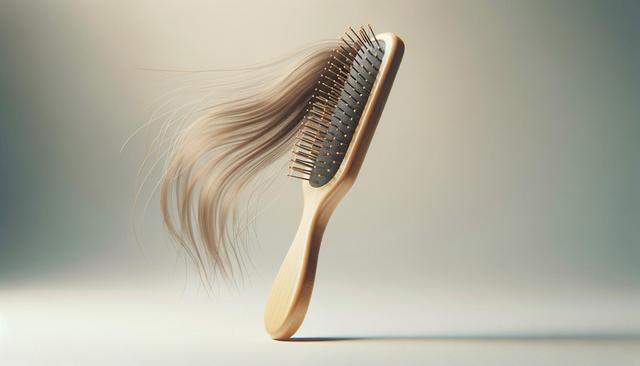Common Causes of Hair Loss
Hair loss can occur for a variety of reasons, and identifying the root cause is an essential first step in addressing the issue. Among the most common causes are genetics, hormonal changes, nutritional deficiencies, stress, and medical conditions. Androgenetic alopecia, often referred to as male or female pattern baldness, is largely hereditary. Hormonal shifts, such as those that occur during menopause, pregnancy, or thyroid imbalances, can also trigger hair shedding.
Nutritional gaps play a significant role as well. A lack of essential nutrients, including iron, zinc, and certain proteins, can weaken hair strands and inhibit growth. Stress, both physical and emotional, can disrupt the hair growth cycle, leading to increased shedding. Additionally, medical treatments like chemotherapy, or conditions such as alopecia areata and scalp infections, can cause temporary or permanent hair loss. Understanding these triggers can help in choosing the right approach, including considering vitamins for hair growth and thickness.
The Role of Nutrition in Hair Health
Diet is closely linked to hair health. Hair follicles require a range of vitamins and minerals to function optimally. When these nutrients are lacking, hair growth can slow or stop altogether. Vitamins for thicker hair, such as biotin, vitamin D, and vitamin E, are commonly recommended for improving hair strength and density.
Some key nutrients that support hair health include:
- Biotin (Vitamin B7): Essential for keratin production, a protein that makes up hair.
- Vitamin D: Helps stimulate hair follicles and supports the growth cycle.
- Iron: A deficiency can lead to anemia, a known cause of hair loss.
- Zinc: Plays a role in tissue growth and repair, including hair follicles.
- Vitamin A and C: Important for cell growth and the production of sebum, which keeps hair healthy.
Incorporating a balanced diet rich in these nutrients or using supplements for hair growth and thickness can make a noticeable difference over time.
Exploring Supplements and Vitamins for Hair Growth
When dietary intake isn’t sufficient, supplements can help fill nutritional gaps. There are various options available, and choosing the right ones depends on individual needs and health status. The best supplements for hair growth often include a mix of vitamins, minerals, and natural extracts designed to nourish hair from within.
Some widely used natural supplements for hair growth include:
- Collagen peptides: Provide amino acids that support hair structure.
- Saw palmetto: Believed to reduce hair loss by blocking certain hormones.
- Horsetail extract: Contains silica, which may strengthen hair and improve texture.
- Marine collagen: Often used in formulations targeting healthy skin and hair.
It’s important to consult with a healthcare provider before starting any supplement regimen, especially when looking for the best vitamins for hair growth, to ensure there are no interactions with existing medications or conditions.
Lifestyle Factors That Affect Hair Loss
Beyond nutrition, lifestyle choices also impact hair health. Smoking, excessive alcohol consumption, poor sleep, and chronic stress can all contribute to hair thinning. Making small lifestyle adjustments can support the effectiveness of vitamins for hair growth and thickness.
Positive lifestyle changes that support hair health include:
- Regular exercise: Improves blood flow, including to the scalp.
- Stress management: Techniques like meditation, yoga, and deep breathing can reduce cortisol levels that interfere with hair growth.
- Adequate sleep: Promotes cellular repair and regeneration, including hair follicles.
- Scalp care: Keeping the scalp clean and using gentle hair care products can reduce breakage and support new growth.
Combined with the right supplements and a nutrient-rich diet, these habits can contribute to noticeable improvements in hair volume and strength.
Setting Realistic Expectations
While supplements and lifestyle changes can significantly improve hair health, it’s important to maintain realistic expectations. Hair growth is a slow process, and results from using vitamins for thicker hair or other supplements may take several months to become visible. Patience and consistency are key.
It’s also helpful to track progress by taking photos, noting changes in hair texture, and observing any reduction in shedding. If no improvement is seen after several months, it may be worthwhile to revisit a healthcare provider to explore additional causes or treatments. In some cases, medical therapies or topical treatments may be recommended alongside natural supplements for hair growth.
Ultimately, an integrative approach that includes the best supplements for hair growth, a balanced diet, and healthy lifestyle habits offers a sustainable path to stronger, thicker hair.
Conclusion: Supporting Your Journey to Healthier Hair
Hair loss can be a complex and personal issue, but with the right knowledge and tools, it’s possible to take meaningful steps toward improvement. Whether you’re exploring vitamins for hair growth and thickness or making lifestyle changes to support overall wellness, a comprehensive approach offers the best chance for long-term success. By focusing on nutrition, using well-regarded supplements for hair growth and thickness, and maintaining healthy habits, many individuals find that they can support their hair’s natural growth cycle and restore both volume and confidence.




Leave a Reply